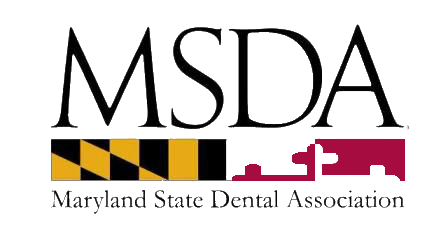Emergency Dentistry In Columbia, MD
Request an Emergency Appointment!
Invisalign
Emergency Dentistry Patient Testimonial
" I had a wonderful experience here with Dr. Patel and the Staff. He has a wonderful bedside manner, the way he conducts his business and practice here, I am delighted to be a new patient here!" -Aman
Join Our Community!
Emergency Dental Care in Columbia, MD
Pain, bleeding, and infection are warning signs that require emergency dental care to prevent serious problems and save your teeth. Many patients hesitate to seek urgent dental care, unsure if their symptoms—such as a knocked out tooth, cracked tooth, chipped teeth, dental infection, or broken crowns—qualify as a dental emergency. However, delaying treatment can lead to further damage and complications. While gently rinsing your mouth and avoiding chewing on the affected side may provide temporary relief, the safest option is to call an emergency dentist for professional care. Whether you're dealing with severe tooth pain, swelling, lost fillings, a fractured tooth, or other common dental emergencies, our compassionate team is here to help. We provide emergency dental services to ensure you receive prompt and effective care. Don’t wait—seeking immediate medical attention can make all the difference in preserving your oral health. Call us at (410) 730-6460 today if you're experiencing a dental emergency, and we'll make sure you see our emergency dentist as soon as possible.
Common Dental Emergencies
If you have a dental emergency, it’s important to see a dentist in Columbia, MD, immediately. Here are some of the most common dental emergencies that our expert emergency dentists handle at our Maryland dental office:
If you're experiencing any of these common dental emergencies, call our office for same-day emergency dental services. Don't wait—seeking immediate care can make all the difference in preserving your oral health.
Dental Emergency Information
Below are frequent
dental emergency issues. Emergency patients are welcome at
Smile Savers Dentistry in Columbia, MD . If you are experiencing a
dental emergency , please contact our office as soon as possible at
(410) 730-6460.
First Aid for Dental Emergencies
Dental emergencies can be distressing, but many can be managed with first aid before seeing an emergency dentist. If you're experiencing severe tooth pain, trauma to the mouth, or uncontrollable bleeding, follow these tips to relieve your symptoms and protect your oral health on the way to the dental office.
If you or a loved one is experiencing any of these dental emergencies, don’t wait—call our emergency dental office for same-day urgent dental care to prevent further damage and ensure the best possible outcome.
Meet Our Emergency Dentist
Dr. Anuja Patel's dental journey began in India in 2002, where she excelled as a top graduate at Rajiv Gandhi University. Her passion for comprehensive dental care and continuous learning led her to the United States, where she expanded her expertise alongside her husband, Dr. Vikaskumar Patel. She later earned an MBA in healthcare, graduating with honors which earned her an invitation to the Sigma Beta Delta Honor Society, further enhancing her understanding of the U.S. healthcare system. In 2013, she graduated from the University of Colorado Dental School, gaining advanced knowledge from leading dental professionals. Now based in Maryland, Dr. Anuja provides emergency dental services with a blend of compassion, advanced technology, and individualized care, ensuring patients receive the best treatment for their dental emergencies.
Our Mission
At Smile Savers Dentistry, our mission is to help patients overcome past negative experiences with emergency dentistry by offering gentle, compassionate care. Whether a patient arrives feeling scared or embarrassed about their dental problems, our goal is to ensure their comfort from the very first visit. Over time, we strive to restore their oral health and their confidence in dental care. By truly caring for each individual, we believe we can change lives, making Smile Savers Dentistry home to the best emergency dentist in Columbia, Maryland.
What to Expect at an Emergency Dentist Appointment
You shouldn't have to worry about the unknown when dealing with a dental emergency. Smile Savers Dentistry prioritizes your comfort and provides urgent dental care in a stress-free environment. Here’s what you can expect during an emergency dental appointment:
- Initial Assessment – We gather details about your dental injury, tooth pain, or other urgent concerns to provide the most effective treatment. New patients will need to provide basic health information.
- Examination & X-Rays – Our emergency dentist will quickly examine your teeth and may take digital X-rays to assess the issue in depth.
- Personalized Treatment Plan – Once we understand the full scope of the problem, we will create a customized treatment plan. Our compassionate team will explain every step and answer any questions.
- Immediate Care & Follow-Up – We will perform the necessary emergency dental treatment and schedule follow-ups if required. You will also receive aftercare instructions to ensure a smooth recovery.
We understand that dental emergencies can be overwhelming. That’s why our dedicated team is here to provide same-day emergency dental services with care, comfort, and expertise. Call us today to get the professional emergency dental care you deserve!
Treatments for Dental Emergencies in Columbia, MD
The goal of emergency dental treatment is to address urgent dental issues as quickly as possible, ensuring that your oral health is protected while also relieving pain efficiently. Whether you have a cracked tooth, lost filling, or severe toothache, our emergency dentist in Columbia, MD, offers comprehensive solutions to restore your dental health. Depending on your specific dental emergency, you may need one of the following urgent dental care treatments:
No matter the dental emergency, our compassionate team at Smile Savers Dentistry is ready to provide same-day emergency dental care to alleviate pain and restore your oral health. Call us today to schedule your emergency dental appointment!
Frequently Asked Questions about Emergency Dentistry
Smile Savers has been around for 30 years, and we've talked to countless patients about their questions and concerns regarding emergency dental care. Below are some of the more common questions we hear and their answers.
If you are experiencing any dental pain or discomfort, don't wait to seek treatment. Call Smile Savers Dentistry at (410) 730-6460 to schedule an appointment. We'll be happy to answer any of your questions and provide the care you need.
For More Information, Call Our Dental Office Today
Do you have another question or concern about your dental emergency that you can’t find the answer to on this page? Our friendly staff is ready to help! Just give us a call at the number below, and we will help you get the answer to your questions as soon as possible.
Call us at
(410) 730-6460
today!
You can also reach out to us online by filling out a contact form, and one of our staff members will reach out to you with more information.
Top Rated Dentist
With Over 500+ Positive Reviews
What patients are saying about Smile Savers Dentistry


Contact Us
Address & Phone:
Hours:
Smile Savers is accepting new patients however, we DO NOT accept HMO's, Medicaid, or other State Insurance Programs. If you require financial assistance please contact our office regarding our membership plan and financing options.











